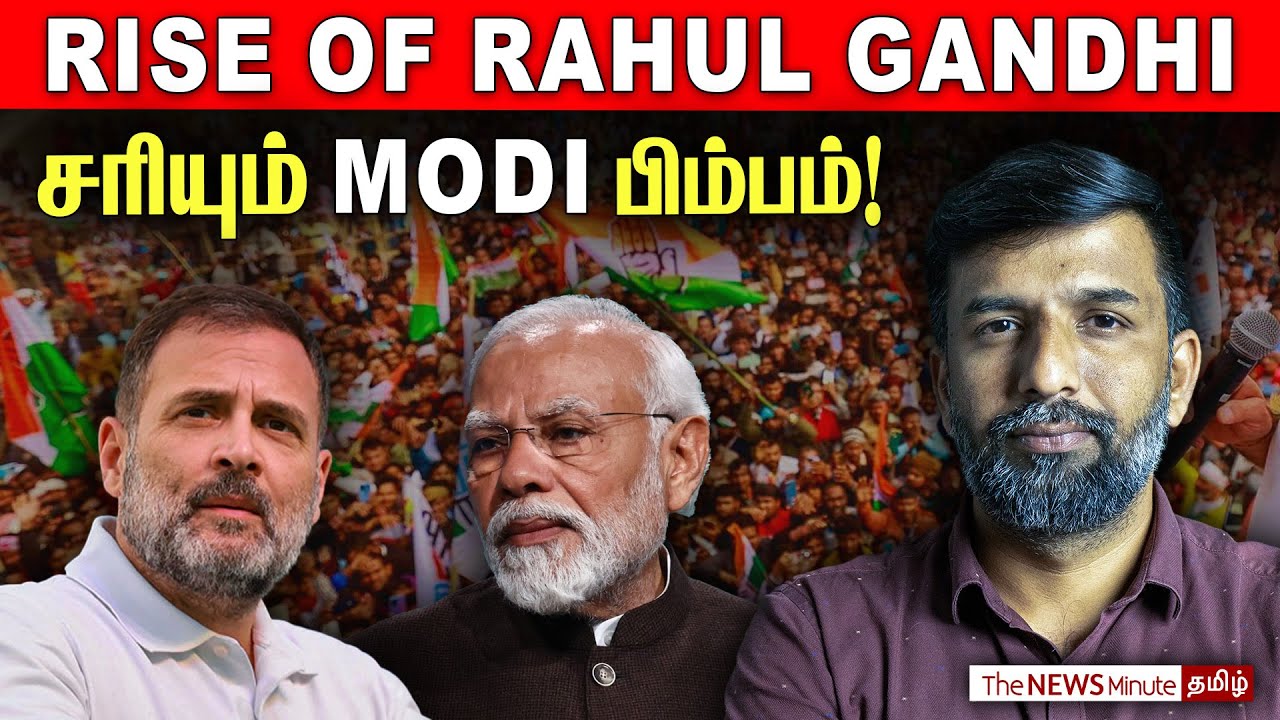Western media on India| Book review
Summary
TLDRThe video discusses the book 'Western Media Narrative on India: From Gandhi to Modi' by veteran journalist Umesh Upadhyay. The book explores how Western media creates biased narratives about India, often misrepresenting historical events and India's progress. Through examples like the limited coverage of India's presidents and critical events, the book highlights how media selectively portrays information to serve specific agendas. It also emphasizes the need for India to develop its own unbiased media systems and spread information freely, combating misrepresentation in the global media landscape.
Takeaways
- 📚 The speaker introduces a book titled *Western Media Narrative on India: From Gandhi to Modi* by Umesh Upadhyay, a veteran journalist.
- 📰 The book explores how Western media shapes narratives about India, often creating biased or selective stories.
- 🇮🇳 Umesh highlights an incident where the election of Giani Zail Singh as India's president in 1980 received little coverage in Canadian media, raising questions about selective media focus.
- 🚍 The author compares this with how Western media widely covered a bus accident involving Hindu pilgrims in India around the same time.
- 🌍 The book also discusses the lack of coverage on significant global events like Suriname's independence from Dutch rule in 1975.
- 🖋 Umesh uses historical examples, including India's independence and British rule, to explain how false narratives were created to justify colonialism.
- 🚀 A chapter in the book examines how Western media mocked India's space program, portraying India as a poor country unfit for such advancements.
- 😷 The book covers media biases during the COVID-19 pandemic, where Western media focused on India's challenges while ignoring its successes.
- 📰 Umesh emphasizes how intellectual colonialism continues today through media outlets, perpetuating narratives that may not reflect the truth.
- 🌐 The author suggests India should develop its own unbiased media system to counter these narratives and ensure truthful information dissemination.
Q & A
What is the main focus of the book 'Western Media Narrative on India: From Gandhi to Modi' by Umesh Upadhyay?
-The book focuses on how Western media creates narratives about India, highlighting biases, inaccuracies, and selective coverage from the time of Gandhi to the Modi era.
Who is Umesh Upadhyay, the author of the book?
-Umesh Upadhyay is a veteran journalist with decades of experience, known for analyzing media narratives and their impact on India.
What specific incident made Umesh Upadhyay start questioning Western media coverage of India?
-While in Canada in the 1980s, Umesh noticed that the election of India's President Giani Zail Singh, a significant event, was largely ignored by Canadian media, despite Canada's large Sikh population. This incident led him to question how media selectively covers news.
What role does the author suggest Western media plays in shaping global perceptions of India?
-The author argues that Western media creates and propagates biased narratives about India, often showing it in a negative light or focusing on selective aspects to fit their agenda.
How does the book describe Western media's portrayal of India's space program?
-The book highlights that when India made significant strides through ISRO, Western media mocked the country’s poverty and questioned why a 'poor country' was investing in space exploration, rather than praising the achievement.
What example does the author provide regarding biased coverage of India's internal affairs by Western media?
-The author cites the liberation of Hyderabad, where Western media favored the Nizam’s side and criticized Sardar Patel, despite the complexities of the situation.
How does the book address the colonial mindset still present in Western media narratives?
-The book argues that even after India’s independence, Western media continued to propagate narratives similar to the colonial era, depicting colonial powers as benefactors to the colonized countries, echoing the thoughts of figures like Rudyard Kipling.
How did Western media respond to the COVID-19 pandemic in relation to India, according to the author?
-The book criticizes Western media for focusing on how India mishandled COVID-19, selectively highlighting issues and inaccurately portraying the situation, instead of reporting the global nature of the pandemic.
What solution does Umesh Upadhyay propose for countering biased narratives in Western media?
-He suggests that India, as a rising economic and global power, should create its own unbiased information flow system, ensuring free and truthful dissemination of information without relying on biased Western outlets.
What does the author say about the influence of social media and technology on media narratives?
-The book warns that with technologies like AI, the spread of biased narratives has become even more pervasive, as social media amplifies selective information, making it crucial to discern between truth and media bias.
Outlines

此内容仅限付费用户访问。 请升级后访问。
立即升级Mindmap

此内容仅限付费用户访问。 请升级后访问。
立即升级Keywords

此内容仅限付费用户访问。 请升级后访问。
立即升级Highlights

此内容仅限付费用户访问。 请升级后访问。
立即升级Transcripts

此内容仅限付费用户访问。 请升级后访问。
立即升级浏览更多相关视频

Celebrity Chef Vikas Khanna slams BBC Racism: Goes Viral Again | Vantage with Palki Sharma

Mood of the Nation survey: LoP Rahul Gandhi’s popularity rises

BCom Hindi.1st Semester,Class-1 M G University,Kottayam

Is Modi Magic FAILING? | Reality Of Today’s Modi

PAK-IND War Tension | Pakistan, China Warn Modi? | Trump in Action | Khurram Dastgir Big Statement

क्या राहुल गांधी ने शुरू कर दी है 2029 की तैयारी? #rahulgandhi #congress
5.0 / 5 (0 votes)
